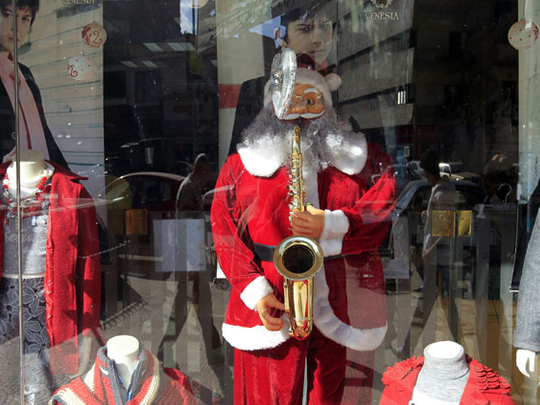
Dubai: Almost a week ago the world woke up to a video of a veiled girl stripped in public at the hands of the Egyptian army, several attempts were made by protesters to save her, and all failed save an Orthodox Christian protester named Ihab Hana.
Hana sustained bruises and a concussion, but otherwise he’s unharmed. Such acts of valour reflect the true identity of the Egyptian protester or rather reminds the world that the protester is an Egyptian, not Muslim or Christian, simply an Egyptian.
Such an act brings to mind questions such as what is the role of the Orthodox Christian Church? Does the church hold a political agenda of its own or does it maintain it’s religious status and leaves the political game for it’s players?
During the early days of the revolution, the Pope Shenouda III head of the Orthodox Christians advised his parish against taking part in the protest for fear of their safety, however the activists took to the streets to support a revolution they believed in.
Beshoy Magdy, 30-year-old auditor and activist, said: “I can’t really say that the protesters acted against the church’s edict. However, I can testify to the church’s complete change of heart after the Maspero massacre.”
Fady Rafik, 30 year-old senior auditor and ctivist disagreed with Beshoy. He said: “There is a stark difference between an advice from a religious leader, and a religious edict, my response was thank you, but I’m taking part in the protests.”
Both activists interpreted the church’s earlier position differently, however they did agree that they were both wary of the rise of Islamic parties, especially Al Nour party. Beshoy said: “Sadly their speech is always riddled with religious vocabulary, and words like haram and halal are used one too many times to explain the reasoning behind their programs, which attracts a wide range of the population.
“We need to separate religion from state, but it’s challenging given the religious nature of our people, be it Muslims or Christians. I am relieved that Al Nour has an equal and strong opposition in the Freedom and Justice Party, that way neither party can dominate the other, and they’ll be forced to participate in actual dialogue.” Secondly, both of them said they wouldn’t have a problem with Al Nour taking part in deciding the fate of the country, if they prove that they have a plan to improve the educational sector as well as the health segment.
George Isaac a renowned political activist, founder and former general coordinator of the Egyptian Movement for Change Kefaya, which means enough, agrees with both activists.
He said: “Like every other Christian Egyptian I have fears, looking at the Islamic speech one finds a certain stiffness, but what we truly fear is targeting of the citizen’s personal freedom. Instead of addressing what people wear, eat or drink, why not talk about educational reform, or how they intend to improve the health segment?
“I honestly think that Al Nour’s party’s concerns are unfounded, the Egyptian people be it Muslim or Christian are religious by nature, they fully understand what is not culturally accepted, and now post revolution, they’ve come to be painfully aware of their rights, and have a firmer grasp on the concept of personal freedom. My advice to Al Nour party and the Freedom and Justice Party is to read the book titled “Personal Freedom in Islam” by Rashid Al Ghanoushi.”
In response to George Isaac’s statement, Hussain Mohammad, the Secretary General of the Freedom and Justice party in their Alexandria headquarters and a member of the party’s executive board said that the Christian Orthodox’s fears are unfounded: “Our party’s stand is clear on this matter, they are very much a party of this community as everyone of us, our party is a member of the Democratic Union, where we’re teamed up with liberal parties such as Al Wafed, or a nationalistic party such as Al Karama (Dignity). Our program glorifies the concept of equal citizenship, the Christians are our fellow Egyptians, what is ours is theirs and what goes on them, goes on us.”
Their opinions, and goals may come from different places, but on one thing they all agree, they all intend to serve Egypt to the best of their ability.
Editor’s Note: To read more, download Gulf NewsTablet Edition on the iPad. It is free and you get two editions a day. Log on to the Apple store and check it out.











